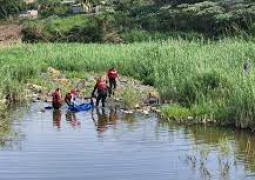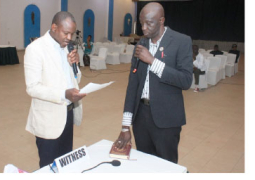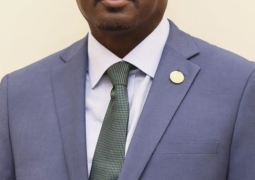
“Implementation of the Women, Peace and Security Agenda lags behind words and rhetoric. Too much is spent on arms and military security, and too little on gender equality and women’s meaningful participation. Sexual and gender-based violence is endemic and rape in war is perpetrated with impunity,” she said.
Yadicon Njie was speaking yesterday during the opening of a day-long Regional Women Conference on Peace and Security in the Sub-region forum.
The convergence was held at a local hotel in Senegambia under the theme ‘Role of Women in the Maintenance of Peace and Security.’ It brought together lawmakers, securities’ personnel and women activists among other key stakeholders.
According to her, ensuring a gender perspective and women’s participation, protection and rights is critical, including in prevention and disarmament, protection and displacement settings, peacekeeping, policy-making and reconstruction, saying: “Action is critical to build a sustainable and peaceful world for all of us.”
A lasting peace, she added, can’t be achieved without the participation of women and the inclusion of gender perspectives and participation in peace processes. “Informal peace initiatives of grassroots women’s groups and networks, organised across party and ethnic lines, have carried out reconciliation efforts and have been increasingly recognised by the Security Council.”
Gender perspectives, she continues, must be fully integrated into the terms of reference of the Security Council resolutions, reports and missions that are related to peace operations. “Peace support operations should include gender advisers and specialist and ensure consultations with women’s groups and networks.”
“For women in The Gambia have managed to move up the political ladder and participate in decision making. To exercise their rights, women need to understand the political process and recognise their value as an influential voting bloc. Also for women’s issues to be given adequate attention, women must be represented in political bodies.”
For her part, Madam Ndey Marie Thiam, president, Women’s Platform for Peace in Casamance (PFPC), said women have always been stakeholders in the search for solutions to various conflict situations.
“The socio-economic development, peace and security of countries cannot be achieved without the effective involvement of women. They occupy a crucial place in the management and prevention of conflict, decision-making processes, peace and security.”
At the sub-regional level, she added, women represent an important category and their intervention in the political and economic space has become a strategic priority.
“With R1325, the Women's Platform for Peace in Casamance is developing women's capacity to influence at both the community and strategic levels.”
Madam Hannah Forster, executive director, African Centre for Democracy and Human Rights Studies (ACDHRS), said women are critical players in conflict resolutions; hence building their capacities is paramount with a view to enabling them take leading roles toward conflict resolution within the sub-region.
“The project aims to make the role of women more central in the management of security, peace and stability in Senegal, Gambia and Guinea Bissau, specifically the PFPC wants to achieve through the women’s forum of the Senegal-Gambia-Guinea Bissau space with specific objectives to contribute to the resolution of cross-border problems between the three countries,” Annetta Mahoney, project officer African Women Development Fund said.




